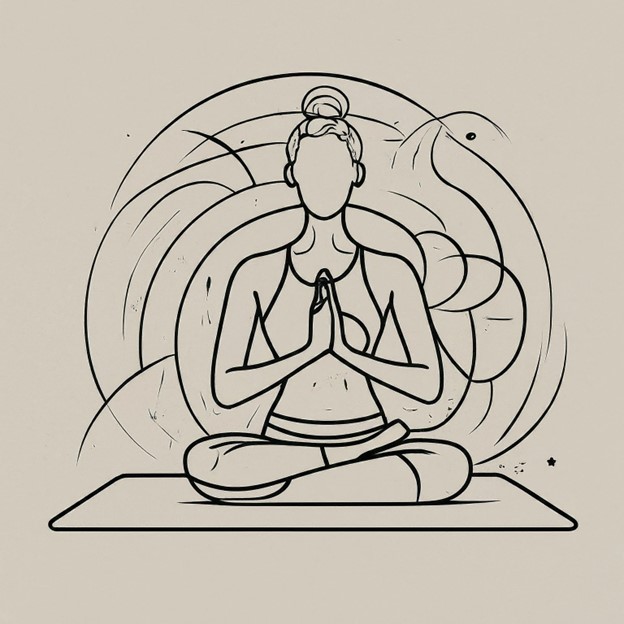- 25 July 2024
- 56
Conquer Stress: Practical Tips for a Calmer, Happier You

Author Introduction:
Hi everyone! I’m Dr. Sarah Jones, a licensed clinical psychologist with over 10 years of experience helping individuals manage stress and improve their overall well-being. In today’s fast-paced world, stress is a common issue that can impact our physical and mental health. But the good news is, stress management techniques can be learned and implemented by anyone. This article will equip you with practical strategies to combat stress and create a more peaceful and fulfilling life.
Feeling overwhelmed? You’re not alone. Stress is a common foe we all encounter in our daily lives. Whether it’s work deadlines, financial worries, or personal challenges, stress can take a toll on our physical and mental well-being.
But the good news is, stress doesn’t have to control you. By learning effective stress management techniques, you can create a calmer, happier, and more balanced life.
Understanding Stress: The Enemy We All Know
Stress is a natural response to a perceived threat or challenge. It’s the body’s way of preparing us to fight or flee. While short-term stress can be beneficial, chronic stress can lead to a variety of health problems, including:
- Headaches
- Muscle tension
- Fatigue
- Difficulty sleeping
- Anxiety
- Irritability
- Difficulty concentrating
- Feeling overwhelmed
Identifying Your Stress Triggers: What Pushes Your Buttons?
The first step to managing stress is understanding what triggers it. Common stress triggers include:
- Work deadlines
- Financial pressures
- Relationship problems
- Family issues
- Health concerns
- Lack of sleep
- Daily hassles
By keeping a stress journal, you can identify patterns and pinpoint your personal stress triggers. This awareness allows you to anticipate stressful situations and develop coping mechanisms.
The Power of Relaxation Techniques: Calming Your Mind and Body
When you’re feeling stressed, your body goes into fight-or-flight mode. Relaxation techniques help activate the relaxation response, counteracting the negative effects of stress. Here are some powerful techniques to explore:
- Mindfulness Meditation: Focuses on present-moment awareness, helping to quiet the mind and reduce anxiety.
- Progressive Muscle Relaxation: Involves tensing and relaxing different muscle groups, promoting relaxation throughout the body.
- Deep Breathing Exercises: Slow, deep breaths activate the relaxation response and can be practiced anywhere, anytime.
- Yoga: Combines physical postures, breathing exercises, and meditation, promoting relaxation and stress reduction.

Healthy Habits for Stress Management: Prioritizing Self-Care
Taking care of yourself is essential for managing stress. Here are some healthy habits to incorporate into your daily routine:
- Regular Exercise: Physical activity releases endorphins, natural mood elevators, and helps manage stress hormones.
- Healthy Diet: Nourish your body with nutritious foods to improve energy levels and overall well-being.
- Quality Sleep: Aim for 7-8 hours of quality sleep each night to allow your body and mind to recharge.
- Connect with Others: Strong social connections provide support and help us feel less alone.
- Spend Time in Nature: Immersing yourself in nature can be a powerful way to reduce stress and improve mood.
- Engage in Hobbies: Doing activities you enjoy can bring relaxation and a sense of accomplishment.
Building Resilience: Strategies for Long-Term Stress Reduction
Stress is a fact of life, but we can develop resilience to manage it more effectively. Here are some strategies to enhance your stress resilience:
- Develop Time Management Skills: Learn to prioritize tasks and manage your time effectively to avoid feeling overwhelmed.
- Set Realistic Goals: Set achievable goals and celebrate your accomplishments, boosting confidence and reducing stress.
- Learn to Say No: Don’t be afraid to politely decline requests that would add undue stress to your plate.
- Practice Positive Thinking: Focus on the positive aspects of your life and develop a more optimistic outlook.
- Develop Problem-Solving Skills: Learn effective coping mechanisms to address stressful situations proactively.
When to Seek Professional Help: Recognizing When You Need Support
While these strategies can be highly effective, there are times when professional help is necessary. If you’re struggling to manage stress on your own and it’s impacting your daily life, don’t hesitate to seek help from a therapist or counselor.
Conclusion: Creating Your Stress-Free Future
Stress management is a continuous journey, not a one-time fix. By incorporating these techniques into your life, you can develop a personalized toolbox to combat stress and create a calmer, happier, and more balanced life.

